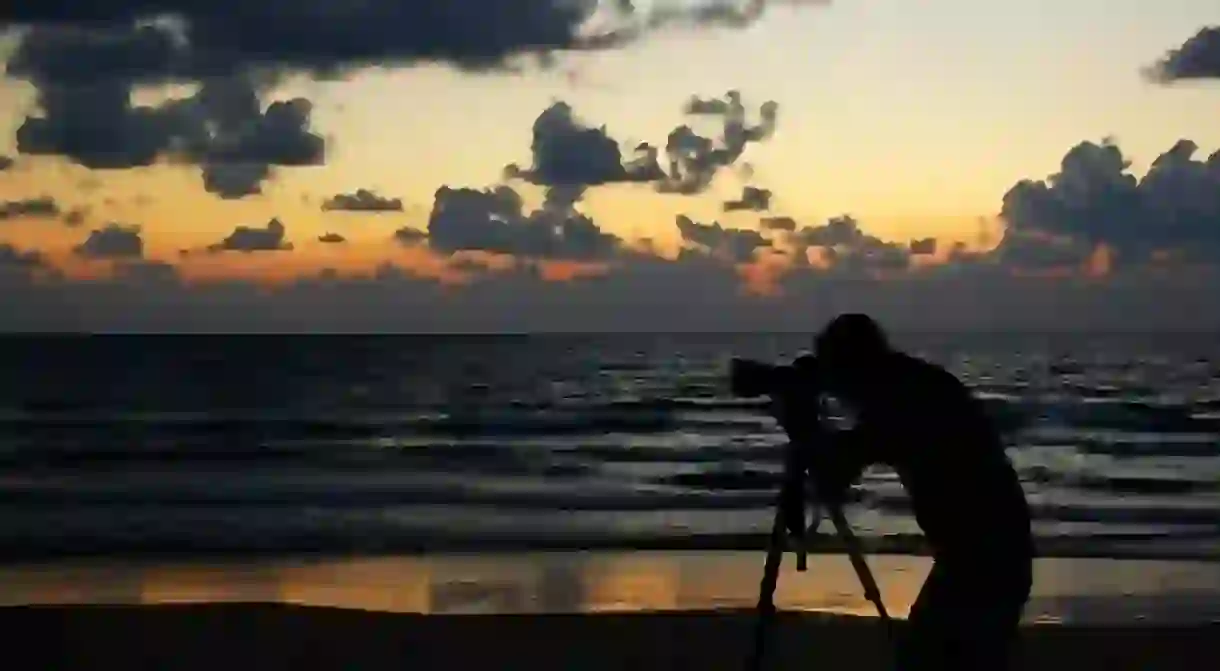9 Israeli Documentaries You Need to Watch

The last decade has seen a swathe of engrossing documentaries emerge from Israel, placing the country’s film industry on the international map. Not only do these 9 documentaries make for great viewing, they also offer an insightful glimpse into the complexities of Israeli history and society.
The Law in These Parts (2011)
Directed by Ra’anan Alexandrowicz, this award-winning documentary explores the reality of Israel’s military occupation of the West Bank, a territory it gained control over following 1967’s Six Day War. Probing beneath the surface of this occupation, Alexandrowicz interviews judges, lawyers and military generals who were directly involved in its handling. In doing so, he provides us with a stark and brutally honest depiction of this occupation and the dilemmas it poses.
Waltz With Bashir (2009)
A masterful and moving animated documentary-film written and directed by Ari Folman, Waltz With Bashir revolves around the massacre of Palestinians in a refugee camp during the 1982 war between Israel and Lebanon. Committed by a Christian militia, Folman attempts to reconstruct the events that led to this tragedy and assesses Israel’s blame for enabling it.
https://www.youtube.com/watch?v=_J9uoLMhMhs
Dancing in Jaffa (2014)
Fundamentally, Hilla Medalia’s documentary is about peace and coexistence. It follows ballroom dancer Pierre Dulaine’s Dancing Classrooms program in Jaffa, Israel, an area with a mixed Arab and Jewish Israeli population. Focusing on three children of different faiths and backgrounds, this documentary shows the deep-rooted issues and barriers that exist in Israel and the power of the arts in bringing people together, presenting a blueprint for hope and a positive future.
The Gatekeepers (2013)
Dror Moreh’s Oscar nominated documentary is based on interviews with six former leaders of Israel’s highly secretive counter terrorism intelligence agency, Shin Bet. With an unprecedented degree of openness – this was the first time they agreed to be interviewed – Moreh provides us with a gripping and thought-provoking account of Israel’s security situation since the 1967 war, from Palestinian suicide bombings to the assassination of Israel’s Prime Minister Yitzhak Rabin by an Israeli Jewish extremist.
Defamation (2009)
In Defamation, Israeli filmmaker Yoav Shamir, with a touch of irreverence, tackles a sensitive and much discussed question ubiquitous in the Jewish world: what is anti-Semitism today? He meets with a diverse range of Jewish people, including leading figures in the American community, Israeli students visiting Auschwitz, his grandmother, and controversial historian Norman Finkelstein. The result is a provocative and insightful account of how Jews today define and relate to anti-Semitism.
The Green Prince (2014)
Mosab Hassan Yousef’s father was one of Hamas’s founders. This remarkable documentary shows how he became an informant for a decade for Israel’s internal security agency, Shin Bet. Comprising of interviews between Yousef and his Israeli handler, Gonen Ben Yitzhak, Nadav Schirman’s portrayal of this real-life spy story makes for gripping viewing.
Numbered (2012)
In Auschwitz, inmates were dehumanised; their names became numbers, permanently tattooed on their arms. In Numbered, directors Dana Doron and Uriel Sinai provide an intimate, highly poignant account of how Auschwitz survivors relate to their numbers now, and how they have impacted their lives and the lives of those around them.
The Flat (2011)
Director Arnon Goldfinger is the grandson of Jewish refugees from Nazi Germany. When clearing out his grandmother’s Tel Aviv flat after her death, he stumbles upon a scarcely believable discovery: she had been friends with a high-ranking Nazi official. Shocked and determined to find answers, Goldfinger travels to Germany to meet the Nazi’s daughter and historians, as he embarks on a personal journey to uncover his family’s past and suppressed secrets.
Paper Dolls (2011)
Tomer Heymann’s documentary film tells the story of a group of Filipino transvestites he befriended, who, rejected by their families, moved to Israel to work illegally. Their job? Caring for elderly, Orthodox Jewish men, and once a week, performing drag in a group called ‘Paper Dolls’ in Tel Aviv.













